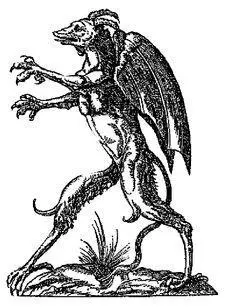From her Puritan ancestors, she inherited boredom, a mark of distinction for her race and her class: do not touch, do not speak. Gentlemen went into politics and business; ladies perpetuated the species and lived in ill health.
Emily inhabited solitude and silence. Cloistered in her bedroom, she invented poems that broke the rules of grammar and the rules of her own isolation. And every day she wrote a letter to her sister-in-law Susan, who lived next door, and sent it by mail.
Those poems and letters formed a secret sanctuary. There, her hidden sorrows and forbidden desires could yearn freely.

It happened in Chicago in 1886.
On the first of May, strikes paralyzed cities across the country. The Philadelphia Tribune offered a diagnosis: “The labor element has been bitten by a kind of universal tarantula — it has gone dancing mad.”
Dancing mad were the workers who fought for the eight-hour day and for the right to form unions.
Four labor leaders were charged with murder. The following year they were sentenced with no evidence by a kangaroo court. George Engel, Adolph Fischer, Albert Parsons, and August Spies marched to the gallows. The fifth condemned man, Louis Linng, blew himself up in his cell with a smuggled dynamite cap.
On every May first, the entire world remembers them. With the passing of time, constitutions, laws, and international accords have proved them right.
But some of the most powerful corporations have yet to find out. They outlaw unions and keep track of the workday with those melting clocks painted by Salvador Dalí.

It happened in Washington in 1886.
Gargantuan companies won the same legal rights as regular home-grown citizens.
The Supreme Court annulled over two hundred laws that regulated or limited the activities of business, and at the same time extended human rights to private corporations. The law conferred on big companies the same rights as persons, as if they, too, breathed: the right to life, to free expression, to privacy. .
At the beginning of the twenty-first century, corporations are still humans.

In 1871 a revolution left Paris, for the second time, in the hands of the Communards.
Charles Baudelaire compared the police to the god Jupiter, and warned that with no aristocracy the cult of beauty would disappear.
Théophile Gautier offered an eyewitness account:
“Stinking beasts, with their savage howls, are invading us.”
The short-lived government of the Commune burned the guillotine, took over the barracks, separated church from state, handed factories closed by the bosses over to the workers, outlawed night shifts, and established secular, free, and mandatory schooling.

“Secular, free, and mandatory schooling will do nothing but increase the number of imbeciles,” predicted Gustave Flaubert.
The Commune did not last long. Two months and a bit. The troops that had fled to Versailles returned, attacked, and after several days of combat they crushed the workers’ barricades and celebrated their victory with firing squads. For a week they killed night and day, machine guns killing by the dozen. Flaubert urged them to show no compassion for the “rabid dogs,” and his first recommendation was “to do away with universal suffrage, which is shameful to the human spirit.”
Anatole France also celebrated the butchery:
“The Communards are a committee of murderers, a pack of scoundrels. At long last the government of crime and lunacy is rotting before the firing squads.”
Émile Zola declared:
“The people of Paris will recover from their fevers and grow in knowledge and splendor.”
The winners erected the Basilica of Sacré-Coeur on Montmartre to give thanks to God for the victory He bestowed.
Today that giant cream pie is a big tourist attraction.

All power to the neighborhoods. Each neighborhood became a public assembly.
And women were everywhere: workers, seamstresses, bakers, cooks, flower girls, babysitters, cleaners, ironers, barmaids. The enemy called them pétroleuses, incendiaries, these fiery women who demanded rights denied by the very society that demanded so many obligations.
Women’s suffrage was one of those rights. In the previous revolution of 1848, the government of the Commune rejected it in a close vote, eight hundred and ninety-nine to one.
The second Commune remained deaf to the demands of women, but while it lasted, during that brief spell, women spoke up in all the debates, they raised barricades and treated wounds and took up the weapons of those who fell, and they fell fighting with red kerchiefs, the badge of their battalion, at their throats.
Afterward, in defeat, when the moment arrived for the offended powers to take revenge, more than a thousand women were tried in military court.
One of the many sentenced to deportation was Louise Michel. The anarchist teacher had joined the struggle with an old carbine and in battle had won a brand-new Remington rifle. In the confusion of the final days, she escaped death, but was sent far, far away to the island of New Caledonia.

“I want to know what they know,” she explained.
Her companions in exile warned her that the savages knew nothing, save how to devour human flesh.
“You won’t get out alive.”
But Louise Michel learned the language of native New Caledonians, and she went into the jungle and came out alive.
They told her their sorrows and asked her why she had been sent there:
“Did you kill your husband?”
And she told them the story of the Commune.
“Ah,” they said. “You’re one of the vanquished. Like us.”

He was his epoch. He was his nation.
He was a monarchist and he was a republican.
He embodied the ideals of the French Revolution, and by the art of his pen he transformed himself into the poor soul who steals out of hunger, and into the hunchback of Notre Dame. But he also believed in the redemptive mission of French military might in the world.
In 1871, he was nearly alone in condemning the repression of the Communards.
Before that, he was among the many in applauding the conquest of colonies:
“It is civilization marching against barbarism,” he wrote. “It is an enlightened people setting out to meet a people living in darkness. We are the Greeks of the world, we must enlighten the world.”
LESSON IN COLONIAL CULTURE

In 1856, the French government hired Jean Eugène Robert-Houdin, the country’s number-one master magician, to enlighten Algeria.
Algeria’s sorcerers had to be taught a lesson. Tricksters who swallowed glass and cured wounds with a touch, they were sowing the seeds of rebellion against colonial rule.
Читать дальше




















